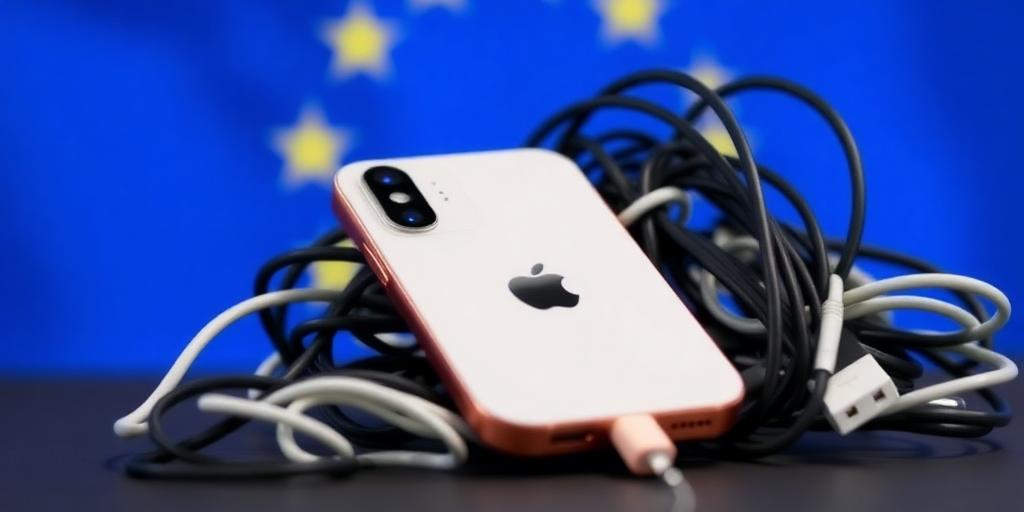The European Union is at it again, potentially forcing Apple to rethink its iPhone design. This time, it's about charging ports. New regulations are in the works that could mandate USB-C as the standard charging port for all mobile devices, including iPhones. This isn't the first time the EU has pushed for standardized charging. Years ago, they successfully pushed for micro-USB as the common standard, which most Android phones adopted. However, Apple stuck with its proprietary Lightning connector.
Why USB-C? The EU argues that a common charging standard reduces e-waste and makes life easier for consumers. Imagine a world where you can use the same charger for your phone, tablet, and headphones, regardless of the brand. That's the EU's vision. USB-C has become increasingly popular due to its faster charging speeds and data transfer capabilities. Many Android phones, laptops, and other devices have already adopted it.
What Does This Mean for Apple? Apple has historically resisted adopting USB-C for the iPhone, citing innovation concerns and the potential for creating more e-waste, as consumers would need to replace their Lightning cables. However, the company has already transitioned to USB-C on some of its other products, such as iPads and MacBooks. If the EU regulations pass, Apple would likely be forced to switch to USB-C on future iPhones sold in Europe. This could lead to a global shift, as Apple might decide to implement USB-C on all iPhones to streamline manufacturing and logistics.
Potential Impacts
- For Consumers: A universal charger would simplify things, reduce clutter, and potentially save money.
- For Apple: The change could be costly and require a redesign of the iPhone. However, it could also open up new opportunities and potentially lead to faster charging speeds on iPhones.
- For the Environment: Reducing e-waste is a major goal. Standardizing chargers could significantly decrease the number of obsolete cables and chargers ending up in landfills.
The EU's push for USB-C is part of a broader effort to promote sustainability and consumer convenience in the tech industry. While Apple may resist the change, the potential benefits of a universal charger could outweigh the drawbacks.









